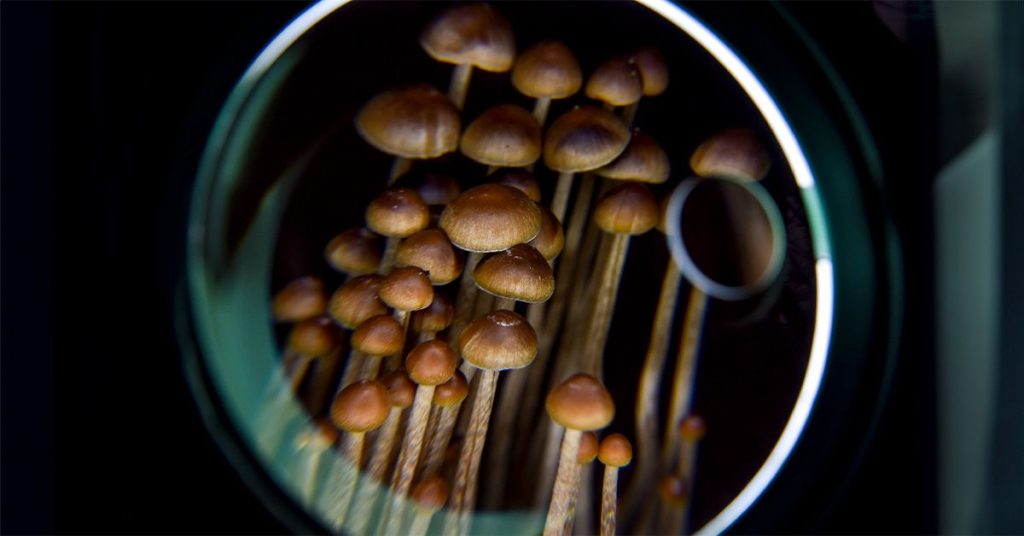About 5% of adults worldwide live with depression, a mental health condition that can cause feelings of sadness, hopelessness, and an inability to experience joy. Selective serotonin reuptake inhibitors (SSRIs) are commonly prescribed medications for treating depression, but they come with potential side effects such as nervousness, headaches, nausea, and loss of libido. Studies have shown that SSRIs do not work for about 30% of people with depression. However, researchers from Imperial College London in the United Kingdom have found that psilocybin, a psychedelic compound found in certain types of mushrooms, can provide similar improvement in depression symptoms as SSRIs, along with better psychosocial functioning and other long-term benefits.
In a study conducted by researchers at Imperial College London, 59 adults with moderate-to-severe depression were recruited. Thirty participants received two 25-milligram doses of psilocybin, while the remaining 29 followed a 6-week course of an SSRI called escitalopram. Both groups also received about 20 hours of psychological support. The study results showed that both groups experienced significant improvement in their depression symptoms, which persisted even up to the 6-month follow-up. Psilocybin was found to disrupt persistent negative thinking patterns that underlie depression, leading to improved social functioning and psychological connectedness. Researchers noted that psilocybin therapy could offer a more holistic approach to treating depression by addressing both symptoms and overall well-being.
David Nutt, one of the authors of the study and a professor at Imperial College London, explained that psilocybin works differently from SSRIs, as it does not suppress emotions like escitalopram does. The study also revealed that participants who received psilocybin reported better remission rates and improved well-being outcomes compared to those who took escitalopram. The researchers plan to further explore the effectiveness of psilocybin in treating other mental health conditions such as anorexia, OCD, and fibromyalgia. They are also investigating whether a single dose of psilocybin can help treat addiction to heroin and gambling, suggesting the potential for broader applications of this psychedelic compound in mental health treatment.
Experts not involved in the research, such as Simon B. Goldberg from the University of Wisconsin – Madison and David Merrill from Providence Saint John’s Health Center, emphasized the importance of exploring alternative treatments to traditional SSRIs in addressing depression. Goldberg highlighted the limitations of SSRIs, such as varying responses among patients, side effects, and potential withdrawal symptoms upon discontinuation. Merrill cautioned that while psychedelics like psilocybin show promise, there are access barriers and potential risks that need to be addressed before widespread use. It is crucial to continue researching alternative treatments for depression to better understand the mechanisms of the condition and improve treatment options for patients.
Matthew W. Johnson from the Sheppard Pratt Center of Excellence for Psilocybin Research and Treatment stressed the need for larger clinical trials to investigate the safety and efficacy of psilocybin for depression. Psilocybin has not yet been approved for depression by regulatory bodies, and completing phase 3 trials is essential for potential approval. Johnson highlighted the importance of studying both the benefits and risks of psilocybin in clinical settings to minimize harm and optimize treatment methods. Rachel Yehuda from the Icahn School of Medicine at Mount Sinai praised the study for examining long-term effects of psilocybin and escitalopram, emphasizing the importance of measuring outcomes beyond symptom severity to assess overall well-being. Yehuda called for more diverse primary outcomes in evaluating mental health treatments to capture the full impact on patients’ lives over time.













